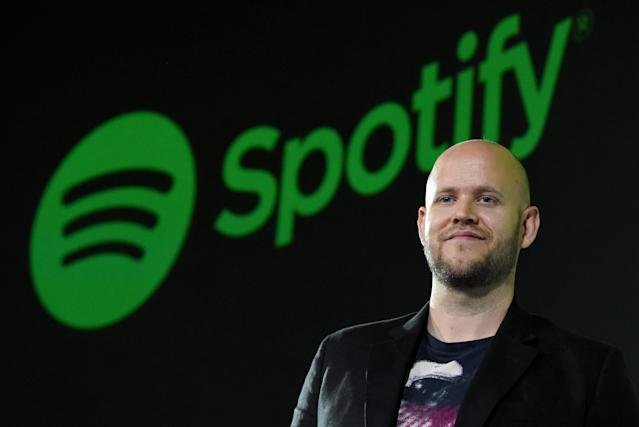Music as a 9-5: How many streams per month do you need to pay the bills?
How many streams should you bag every month to pay your rent and utility bills? Let's take a look and see if it's possible to live off income from streaming services.

If you’re reading this, we’re probably in the same boat. Two madcap rock’n’rollers, too young to be washed-up, too old to be naïve.
We quake with excitement at the thought of breaking through the noise, and I’m not talking about luxury, superstardom or any kind of “legacy”. No, I’m talking about making a living out of recorded music, as you would with any other full-time job. But – alas – reality hits. Hard. You can’t quite afford to make ends meet with the money you just made from streaming, gigs and your sick merch. You get a “real” job. And so it goes.
A strange dichotomy dictates the way (some) people measure a musician’s success. You either make it (i.e. rich, successful) or don’t (i.e. poor, unsuccessful). Although this is a nerve-wrecking and - quite frankly - toxic way of imagining success, the means by which artists are paid for their recorded music seem to reinforce this very narrative, which brings me to the point: how many streams should you bag every month to pay your rent and utility bills?
Before we begin, let’s take a few ifs and buts into account. This is a purely hypothetical analysis, for the music industry has multiple income flows that go way beyond the ol’ fashioned mechanical royalty. Yes, you can make an extra buck or two through NFTs. Do I know what an NFT is? Kind of. For the purposes of this investigation, forget about gigs, fundraisers, advances, merchandise and all the rest. Let’s focus on the raw material: your music.
After doing some research, I’ve gathered that Spotify – on average - pays artists anywhere between $0.003 to $0.005 per stream. Apple Music, slightly more benevolent towards the singer/songwriter proletariat, will pay around $0.01 per stream (2-3 times more than Spotify). The most philanthropic of platforms is Tidal, which pays artists around $0.013 per stream. However, it remains a slightly more niche platform, compared to the corporate giants that are Spotify and Apple Music.

Disclaimer: these numbers can oscillate wildly, depending on the length of each stream, the country the song’s streamed in, the percentage of rights you own for the composition, whether you have a record deal/management deal, and all sorts of different variables. You could be earning the above providing you own 100% of the mechanical and master rights to your song.
You live alone, in a humble 1-bedroom flat. Nothing fancy. Feel like rubbing a little salt in the wound? You live in London. Rent’s not cheap, not to mention your utility bills. Let’s say your rent will cost you anywhere between £1000 to £1500 a month (we’re being very optimistic here) and your water, electricity and internet costs set you back an extra £100 to £150. Therefore, your monthly expenses could go from £1100 to £1650.
There’s nothing left but to do the math.
If you were collecting your royalties from Spotify, you would need an overall 340K to 510K streams a month - or 4M to 6M streams a year - to pay for your rent and bills. In the case of Apple Music, 136K to 205K streams per month (or 1.6M – 2.4M a year) should do it. You would need about the same amount of streams on Tidal to cover your expenses.
To give you some further context, on average you would need about 1K to 5K Spotify streams to make up one working hour of UK minimum wage. That’s 8K to 40K streams a day. 160K – 800K a month. You get the drill.

Now, it’s safe to say that if your single was getting half a million streams per month, you shouldn’t be worrying too much about paying your rent. You’re probably on the radar of many different managers and labels who are dying to give you a fat advance, thus mitigating many of your financial worries. Or perhaps you’re too busy rehearsing for your upcoming tour, which will also be well remunerated. Point being: if you’re racking up these numbers, you needn’t worry, you’re doing just fine.
Far it be from me to be a killjoy and bring up things like wealth inequality or the class struggle, I can’t help but wonder if the means by which musicians are paid seem to favor a small, hyper successful minority, leaving many struggling to make a living, often having to look for a side hustle or a job that has altogether little to do with their profession, thus disincentivizing many rising stars from dedicating enough time to work on their craft and make new music.
Having said that, I must point out that independent music – amidst this struggle for survival – has adapted well enough to modern times. The income streams that back in the day would’ve been mostly limited to mechanical and performance royalties are today more densely ramified and complex. Remember how giraffes have evolved to stretch their necks so they could reach the highest branches? The situation’s not too different with indie musicians, a species that - once on the verge of extinction - has now found ingenuous, alternative ways to thrive.
Make good music. Maintain social media presence. Grow your network. Gig to death. Get a manager (possibly a live agent too). Invest in crowdfunding campaigns. Release single after single, EPs can come later, albums aren’t worth it yet (cost to reward ratio can be massively unfavorable when starting out). Upload content on Bandcamp. Upload music to online synch libraries (there are various platforms that let you pitch your compositions for synch placements, without having to deal with publishing companies). There are plenty clever strategies you can implement in order to grow your following (and your net worth).
The cruel reality of our times is that musicians cannot limit themselves to the single act of music-making. When starting out, you must be willing to invest time and effort into treating your project as your own business, with yourself alone acting as both CEO and employee.
So, if you ever find yourself scratching your head, wondering how to make a buck from music, I would advise you not to expect a monster paycheck from DistroKid, as chances are streaming will only amount to a small percentage of what you’re making. Arguably, one of the best entrepreneurial skills for any young, independent musician is to generate as many income flows as possible, no matter how small, for no single flow is large enough to make a living from. Unless they're put together.

